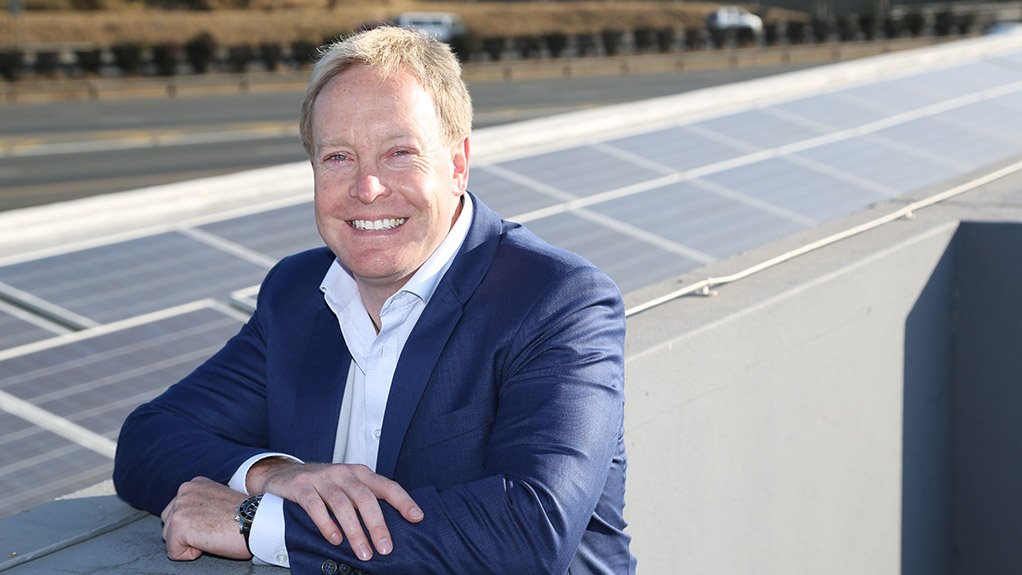
GARETH WARNER Many companies are not familiar with the potential applications of solar PV systems, but the cost of the PV panels has fallen substantially in the past 5 years, helping to drive adoption
South African businesses are tentatively, but increasingly, investigating and adopting solar photovoltaic (PV) systems to reduce their consumption of electricity during daylight hours, says UK solar PV subsidiary Solarcentury Southern Africa MD Gareth Warner.
Many companies are not familiar with the potential applications of solar PV systems, but the cost of the PV panels has fallen substantially in the past five years, helping to drive adoption, he says.
A common application for solar PV systems is to generate electricity to power heaters or air conditioners during the day in winter or in the summer months respectively, as well as computers, and, thus, match the consistent daytime power demands of many businesses.
Solar PV systems must be designed to provide only the energy required by the business because South Africa does not have a system for companies to sell excess electricity to the grid, which has increased the incentive for businesses to install solar PV systems in Europe and the UK, he explains.
“We carefully model the expected electricity production of the system over a year to ensure that we scale the system correctly for the varying electricity demand of the business during the year.”
Further, a business can also choose to generate more electricity earlier in the morning or later in the afternoon, which will entail Solarcentury adjusting the angle of the modules to capture morning sunlight or afternoon sunlight.
However, this must be matched to the expected electricity demand of the business, as these adjustments will change the periods of the day during which the system generates electricity most constantly.
“Much of Southern Africa has clear, bright winter days and this enables the modules to generate a steady current from early in the cold mornings and throughout the day. Businesses that start earlier in the mornings can request that the systems generate more power earlier, but would typically require that they have lower demand in the afternoons,” he notes.
Meanwhile, the company provides guarantees in terms of the power production of its systems, as well as warranties for the components, and boasts 14 years of experience in the industry through its UK parent, highlights Warner.
“While many companies want to improve their sustainability and environment friendliness, the price and return on investment, which is the difference in cost for electricity bought from a utility, remain critical to enable businesses to justify these systems economically.”
For this reason, Solarcentury uses conservative predictions of utility electricity cost increases to derive a conservative prediction for the expected return on investment of its systems.
The company fixes its systems to businesses’ roofs using nonpenetrative methods, which prevent damage to the structures and maintain their integrity, he highlights.
Eventual opportunities to feed electricity into the national grid may enable daytime generation to be distributed across the country, which will boost access to electricity and improve business opportunities, as well as create a new industry of small-scale independent power producers to build, operate and maintain solar PV systems, he enthuses.